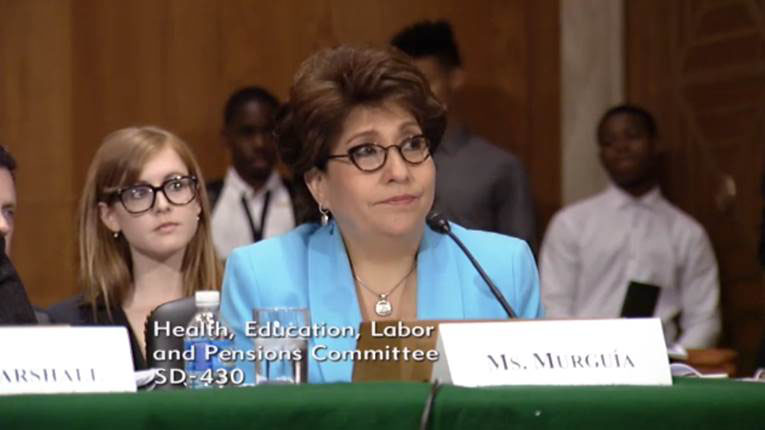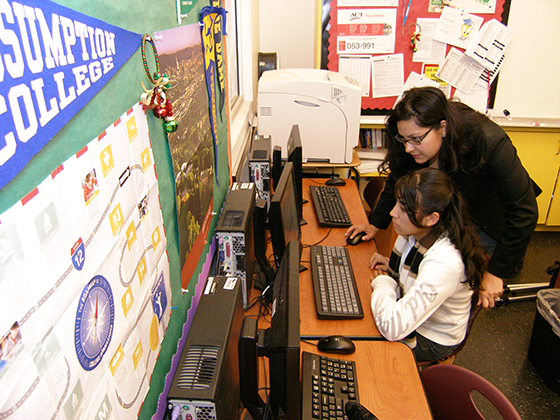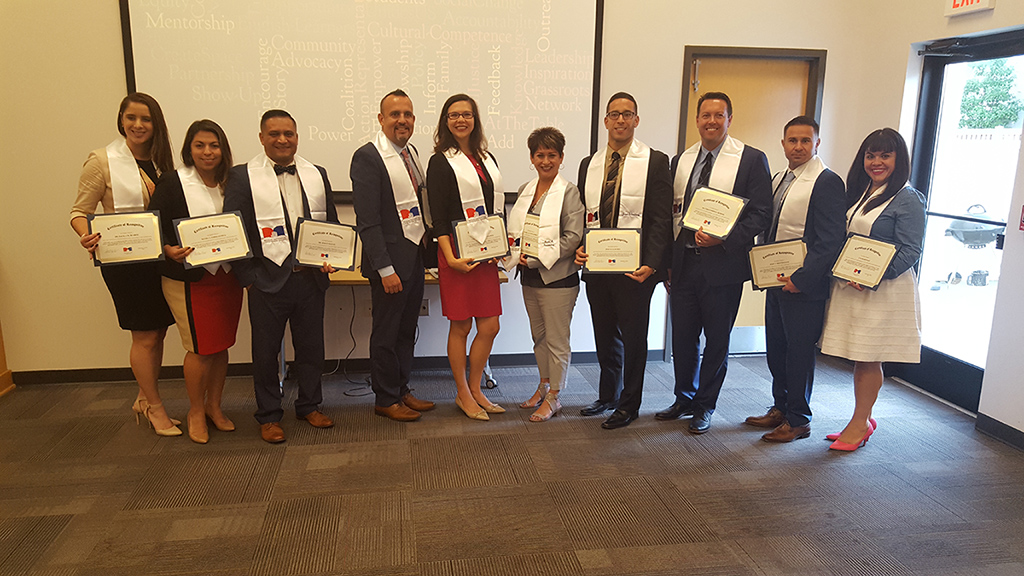Janet Murguía Testimony at ESSA Hearing: Full Remarks

Today our President and CEO, Janet Murguía, testified before the before the U.S. Senate Committee on Health, Education, Labor, and Pensions’ hearing, “ESSA Implementation: Perspectives from Education Stakeholders” to provide the civil rights perspective. Below are the remarks as prepared for delivery:
“NCLR is the largest national Hispanic civil rights and advocacy organization in the United States, an American institution recognized in the book Forces for Good as one of the leading nonprofits in the nation. We represent over 250 Affiliates—local, community-based organizations in 41 states and the District of Columbia—that provide education, health, housing, workforce development, and other services to millions of Americans and immigrants annually. Many of these Affiliates operate as charter schools, provide early education, or offer after-school programming or family literacy services. Their experiences inform NCLR’s federal agenda.
Keep up with the latest from UnidosUS
Sign up for the weekly UnidosUS Action Network newsletter delivered every Thursday.
“NCLR was proud to support the passage of the Every Student Succeeds Act as a much needed update to our federal education law. Notably, for the first time, English language proficiency will be included in states’ accountability systems. However, passage was just the first step. It is critical that ESSA be implemented in a manner consistent with the original Elementary and Secondary Education Act to ensure its promise for all students.
It was a pleasure seeing Sen. @PattyMurray today at the Senate HELP Committee hearing on #ESSA. pic.twitter.com/zY3LPRM8kp
— Janet Murguía (@JMurguia_NCLR) May 18, 2016
“Last year, American schools reached a significant demographic milestone: a majority of students in our classrooms were students of color. As schools across the country have become increasingly diverse, much of the shift can be attributed to the Latino students who account for 25 percent of our K–12 enrollments and represent the second-largest ethnic group of students in schools after White students.
“In part as a result of comparable standardized assessments and college- and career-oriented curricula, Latino students are now graduating at higher rates than ever, their high school dropout rate is the lowest it has ever been, and they are enrolling in postsecondary institutions in record numbers. However, despite improvements in key areas, inequities in access and achievement among Latino and other students of color remain persistent.

“Consistent with the mission of the Elementary and Secondary Education Act, it is imperative that federal funds are used to supplement state and local resources for those most in need. Yet, a recent analysis from the Education Trust found that students in high-poverty districts receive nearly 10% less in state and local funds per student than those in the lowest-poverty districts. Students in districts most in need of supplemental funds are literally being short-changed.
“ESSA provides the federal government with appropriate authority to pursue an education agenda strongly rooted in distributional equity to improve the educational outcomes for children. As a result, the Department of Education has an obligation grounded in ESSA’s legislative intent to promulgate robust regulations related to accountability. Without strong federal oversight and significant stakeholder engagement in the regulatory process, progress for students of color seen over the last decade will erode.”
Read more about NCLR’s work on ESSA and other education initiatives on our website.

